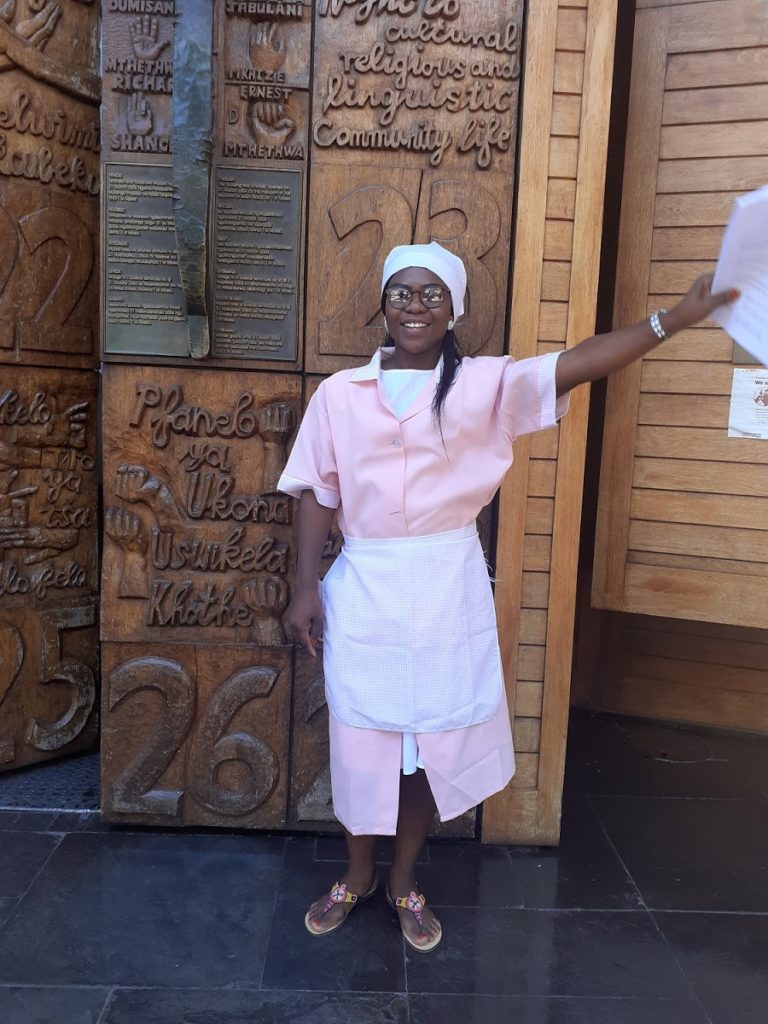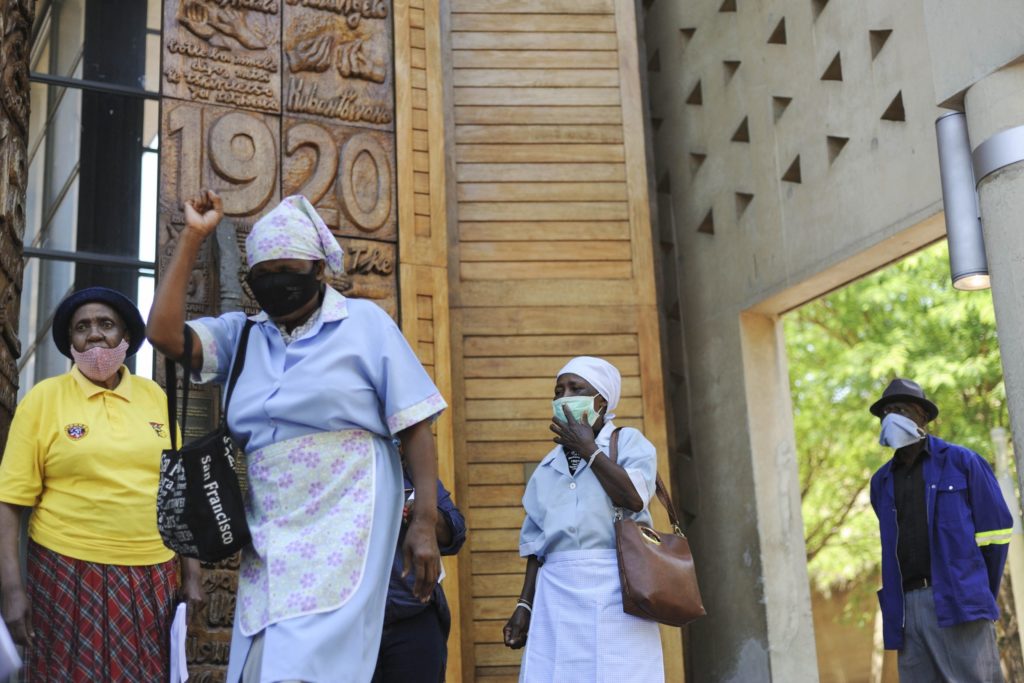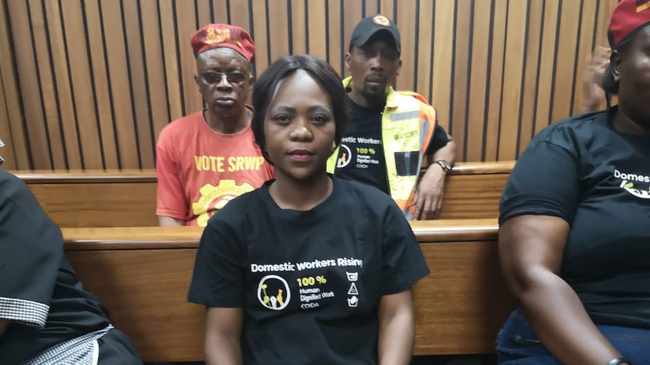
Sylvia Mahlangu outside Constitutional Court
Great news! Last week, South Africa’s Constitutional Court ruled that domestic workers ruled that domestic workers injured on the job in the past can claim damages, under the Compensation for Occupational Injuries and Diseases Act, COIDA. This ruling includes the family of Maria Mahlangu, a domestic worker who had worked for the same family for twenty years. While washing windows, Maria Mahlangu slipped, fell into the pool, and drowned. Her family received no compensation. More to the point, the family offered no compensation and the State excluded domestic workers from COIDA. Last May, the North Gauteng Court ruled that that exclusion was unconstitutional but did not rule on whether that unconstitutionality covered past injuries. Last October, the Gauteng High Court ruled that the Constitutional invalidity of the exclusion of domestic workers meant that all domestic workers are due unlimited retrospective COIDA compensation. The case of Sylvia Bongi Mahlangu and the South African Domestic Service and Allied Workers Union, SADSAWU, vs the Minister of Labour then went to the Constitutional Court. Last Thursday, November 19, the Constitutional Court decided that the exclusion of domestic workers from the Compensation for Occupational Injuries and Diseases Act, COIDA, is unconstitutional. Further, “the order is to have immediate and retrospective effect from 27 April 1994.” After 26 years of struggle, domestic worker organizers, Black women such as 77-year-old SADSAWU organizer Eunice Dhladhla “nearly broke into song inside [the Constitutional Court], breaking the law.” After the ruling, Sylvia Mahlangu said she was excited at the decision. We all should be.
Justice Margaret Victor, writing for the majority, opened her decision: “Domestic workers are the unsung heroines in this country and globally. They are a powerful group of women whose profession enables all economically active members of society to prosper and pursue their careers. Given the nature of their work, their relationships with their own children and family members are compromised, while we pursue our career goals with peace of mind, knowing that our children, our elderly family members and our households are well taken care of.
“Many domestic workers are breadwinners in their families who put children through school and food on the table through their hard work. In some cases, they are responsible for the upbringing of children in multiple families and may be the only loving figure in the lives of a number of children. Their salaries are often too low to maintain a decent living standard but by exceptional, if not inexplicable effort, they succeed. Sadly, despite these herculean efforts, domestic work as a profession is undervalued and unrecognised; even though they play a central role in our society.”
Later in her decision, Justice Victor noted, “In considering those who are most vulnerable or most in need, a court should take cognisance of those who fall at the intersection of compounded vulnerabilities due to intersecting oppression based on race, sex, gender, class and other grounds. To allow this form of state-sanctioned inequity goes against the values of our newly constituted society namely human dignity, the achievement of equality and ubuntu. To exclude this category of individuals from the social security scheme established by COIDA is manifestly unreasonable.
“For all these reasons, I find that the obligation under section 27(2) to take reasonable legislative and other measures, within available resources, includes the obligation to extend COIDA to domestic workers. The failure to do so in the face of the respondents’ admitted available resources constitutes a direct infringement of section 27(1)(c), read with section 27(2) of the Constitution.”
This case crosses beyond the borders of South Africa and beyond the African continent. Many countries across the globe, including the United States, continue to exclude domestic workers from labor laws and from labor law protections and rights. That time is coming to an end. Domestic work is decent work, and domestic workers demand formal recognition of the dignity of their labor. Tell your family, friends, colleagues and neighbors about Maria Mahlangu, Sylvia Mahlangu and last week’s decision. Tell them Sylvia Mahlangu is excited. The time to sing the song of the unsung heroines has arrived. Amandla!

(Photo Credit 1: Sowetan / Penwell Dlamini) (Photo Credit 2: New Frame / Cebelihle Mbuyisa)
